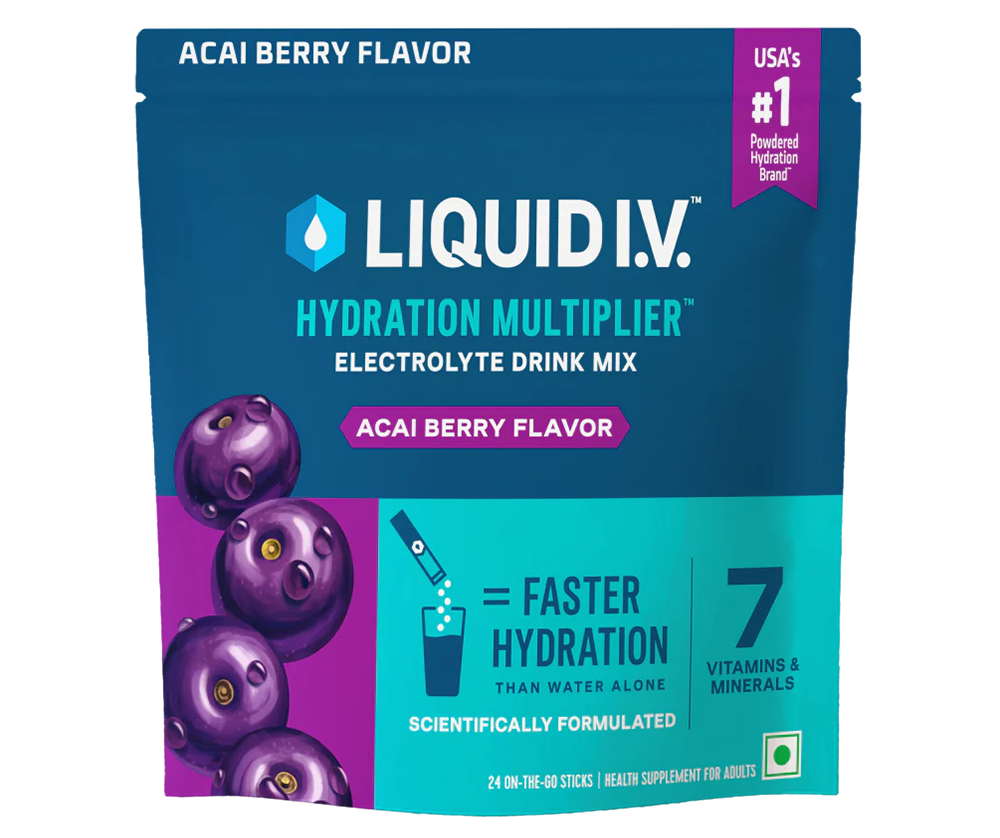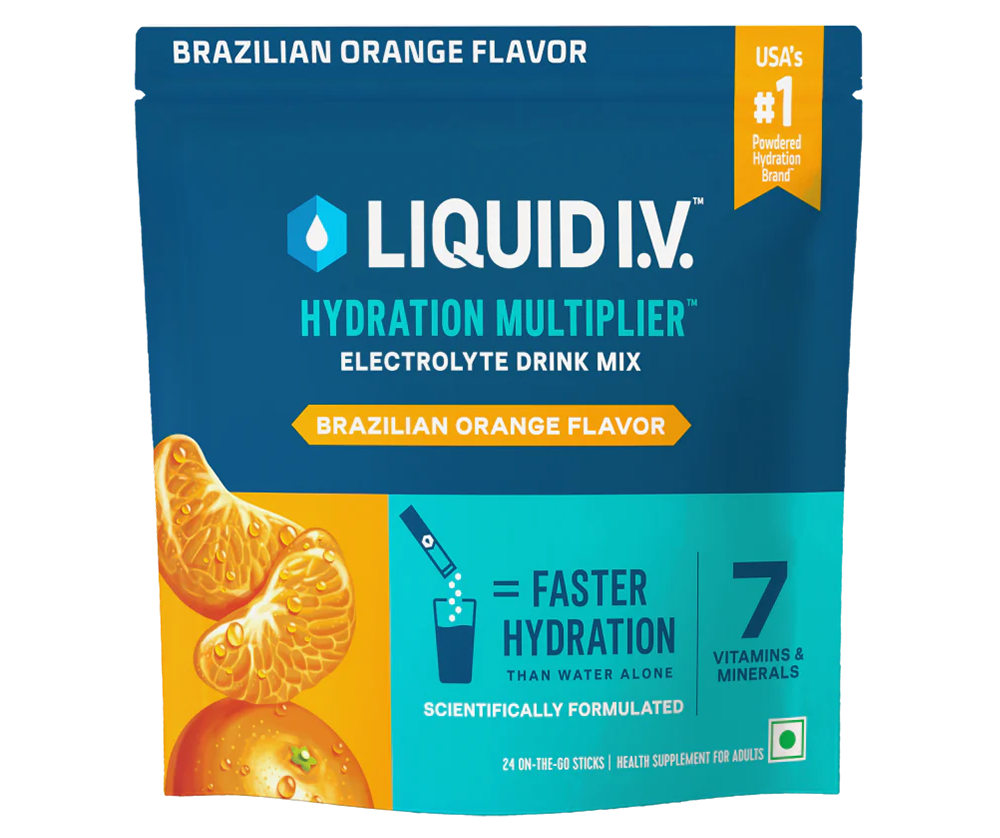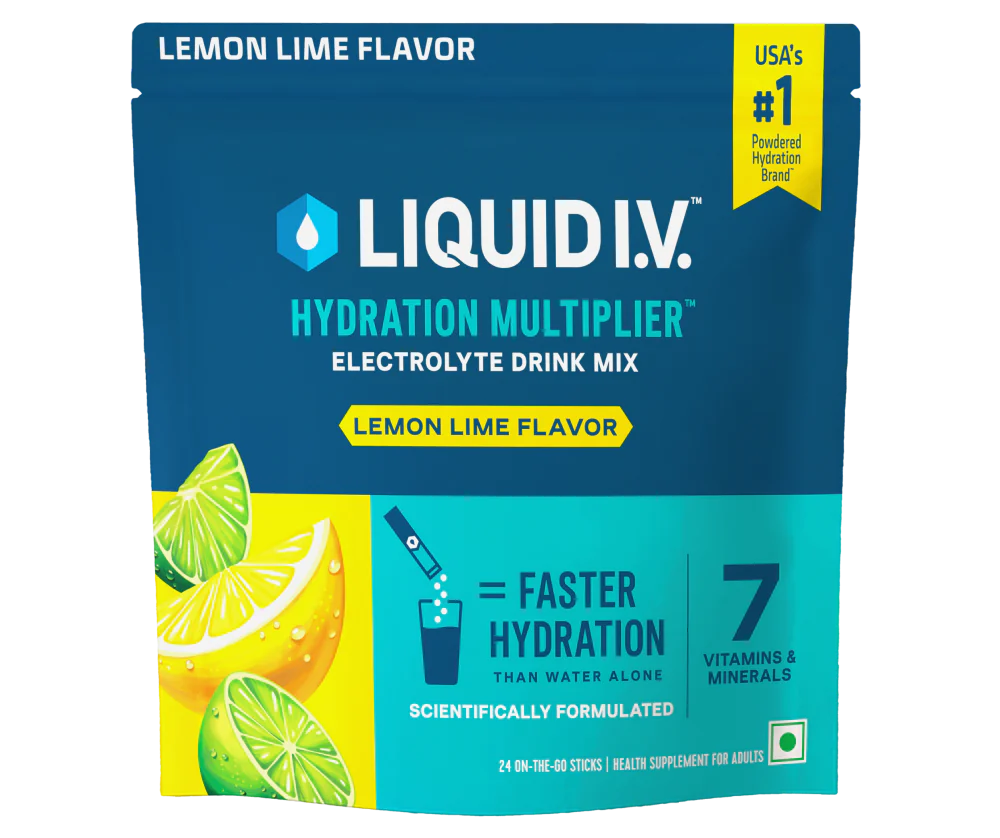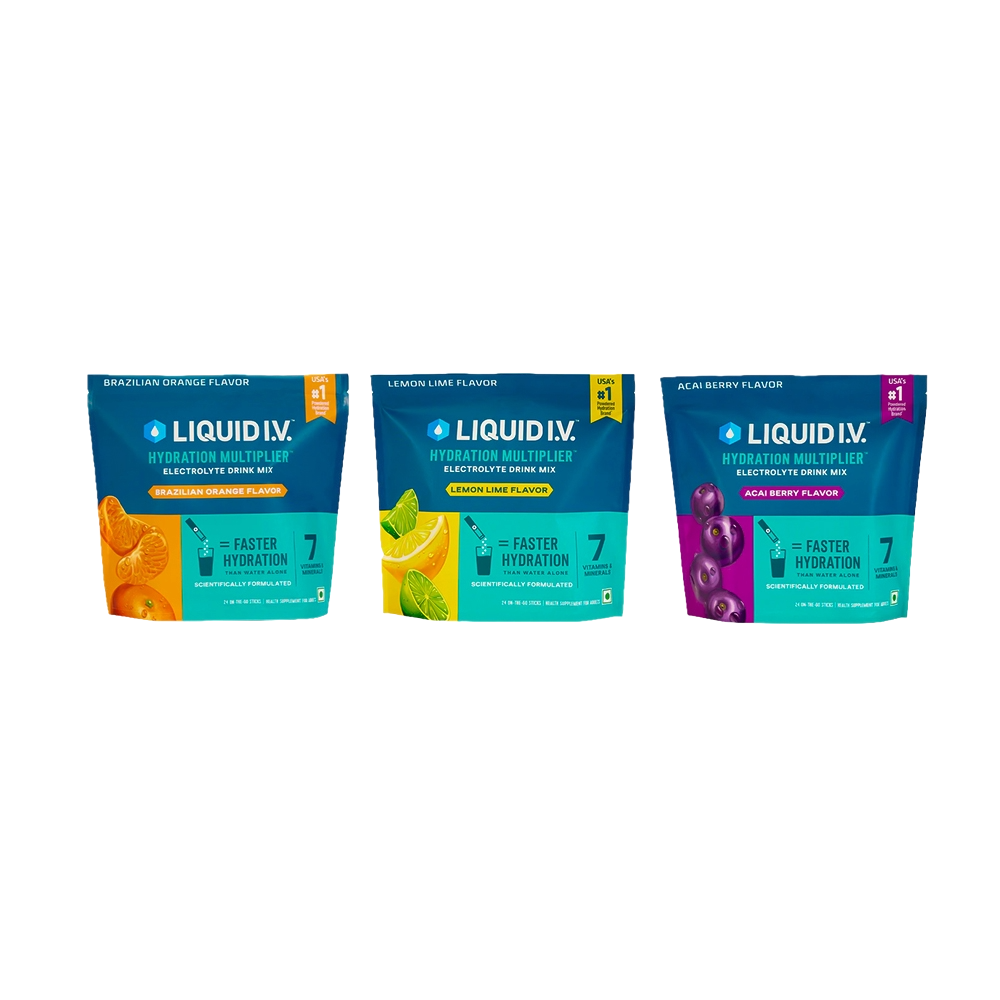Dehydration Headache: What’s Going On & How to Deal With It
Headaches are a total mood killer, right? We've all been there, from a slight annoyance to a full-on pain that messes with our day. One of the sneaky causes of headaches that often flies under the radar is dehydration. Yep, not drinking enough water can lead to what's known as a dehydration headache. These headaches can show up as a throbbing, persistent pain, often accompanied by other mild dehydration signs like light-headedness, intense thirst, and a dry mouth. (1) While most folks find relief through rehydration and rest, don't underestimate the impact of dehydration headaches - they can mess with your concentration, productivity, and overall comfort. It is important to note that while dehydration is a common trigger, it is not the main cause of most headaches. Spotting signs like darker pee and a dry mouth can help you figure out if your headache is due to not drinking enough fluids. (2) But hey, remember that headaches and these signs can also be due to other complicated issues, so make a wise decision about seeing your doctor based on how you feel. Keep this in mind while reading this blog!
Linking dehydration to headaches
The connection between not drinking enough water and the development of headaches is pretty solid. Lots of people get headaches just because they're not drinking enough water. Dehydration is a big trigger for both regular headaches and migraines for many people. (3) Plus, dehydration can make things worse for people who already have headache disorders, like tension headaches and migraines. The relationship between dehydration and headaches can go both ways; not drinking enough fluids can cause headaches, and the symptoms of certain types of headaches, especially migraines with nausea and vomiting, can lead to dehydration. Even though the connection is clear, exactly what happens inside the body through which dehydration causes headaches is still not fully uncovered. But just know that dehydration is more than just not drinking enough water. (3)
How does dehydration cause a headache?
Several processes are believed to contribute to a headache due to dehydration. One theory suggests the shrinkage of brain tissue. Scary right! When our body lacks adequate fluids, the brain, which is very much dependent on water for its function and structure, gets smaller in volume. This slight contraction starts to exert pressure on the nerves and pain receptors, creating a headache. Even a little dehydration can be enough to trigger this brain shrinkage and give you a headache. (4)
Here is another deal: when you're dehydrated, it messes with the balance of electrolytes in your body which are responsible for things like nerve signalling and muscle contraction. When you don't have enough fluids, these electrolytes get out of whack and lead to headaches. This means that just drinking water might not always be enough to fix a dehydration headache, especially if you've lost a lot of fluids and electrolytes. (5)
What are the causes & symptoms of a dehydration headache?
Dehydration headaches can come from all sorts of things, but they all boil down to losing more fluids than you take in. Sweating a lot, whether from intense workouts or hot weather can lead to quick fluid loss and dehydration. Too much coffee and alcohol, plus some meds, can make you pee more and lose fluids faster. Even normal stuff like breathing can cause fluid loss, especially during exercise or in dry air. (4,5)
Dehydration headaches can hit differently for everyone, but there are some common causes. The pain can range from a mild, dull ache to a throbbing or pulsing sensation. Some people feel it all over their head, while others might feel it in specific spots like the front, back or sides. One thing to watch out for is that the pain might get worse with movement, like bending over or shaking your head. This mix of symptoms can make it tricky to self-diagnose without looking at other signs. (5)
Alongside the headache itself, several other symptoms of dehydration are often present. You will feel thirsty or have a dry or sticky mouth, darker than usual or less pee, feeling tired or drowsy, and dizziness or light headedness. Some people might also experience confusion and muscle soreness. If you have several of these symptoms along with a headache, it's a strong sign that dehydration is the culprit. (4)
Dehydration headache remedies
The quickest and most effective way to tackle a dehydration headache is to drink water. The right mix of electrolytes can help with efficient hydration. If your headache eases up quickly after drinking water, it's a good sign that dehydration led to it. (1)
Applying a cold compress or a cool, damp cloth to the forehead or temples can also help to get rid of the pain due to dehydration headaches. The cooler temperature gives a temporary relief from the headache symptoms and is a simple way to manage the discomfort.
Getting adequate rest in a cool, quiet, and dark room can also help reduce headache. Avoiding strenuous activities until the headache has gone allows your body to recover.
Preventing Dehydration Headaches
Preventing dehydration headaches is all about keeping your hydration game strong throughout the day. Watch out for caffeinated drinks and alcohol because they make you pee more and potentially leading to dehydration. Moderation is key. (4)
To avoid dehydration headaches, it's smart to reduce strenuous activities, especially when it's hot or humid. Make sure to hydrate properly before, during, and after any workout. (4)
Adding fluid-rich foods to your diet can also boost your hydration. Fruits like watermelon and cucumbers, and veggies like lettuce and tomatoes, have a high-water content and can help supplement fluids. Your diet plays a supportive role in keeping you hydrated, complementing the water and other beverages you consume. (4)
Conclusion
In conclusion, dehydration headaches are a common consequence of not drinking enough fluids. They can range from mild to severe pain and often come with other dehydration symptoms. While you can usually manage them by drinking water and electrolytes, and resting, severe or persistent dehydration headaches need medical attention. Keeping hydrated through regular fluid intake, and effective rehydration during workouts and hot weather is key to preventing these headaches and staying healthy. Taking proactive steps to stay hydrated is a simple yet powerful way to take control of your well-being and avoid dehydration-related discomfort.
FAQ's
-
What does a dehydration headache feel like?
A dehydration headache can range from a mild, dull ache to a more intense, throbbing pain. The pain may be felt all over the head or localized to specific areas such as the front, back or sides.
-
How to get rid of a dehydration headache?
The best method to get rid of a dehydration headache is to drink water and electrolyte drinks. Some people apply a cold compress for relief.
-
How do I know if my headache is caused by dehydration?
Several factors can help indicate if a headache is caused by dehydration. Consider your recent fluid intake, activity levels, and the environmental conditions you've been in. If you are feeling thirsty, or having dry mouth, and darker pee, it is a strong indicator of dehydration. If the headache improves relatively quickly after drinking water, dehydration is likely the cause.
-
How do I know if my headache is caused by dehydration?
Several factors can help indicate if a headache is caused by dehydration. Consider your recent fluid intake, activity levels, and the environmental conditions you've been in. If you are feeling thirsty, or having dry mouth, and darker pee, it is a strong indicator of dehydration. If the headache improves relatively quickly after drinking water, dehydration is likely the cause.
-
When should I see a doctor for a dehydration headache?
Medical attention should be sought for severe headaches or headaches that do not improve with hydration and rest. Frequent or recurring dehydration headaches may indicate an underlying medical condition that requires evaluation.





